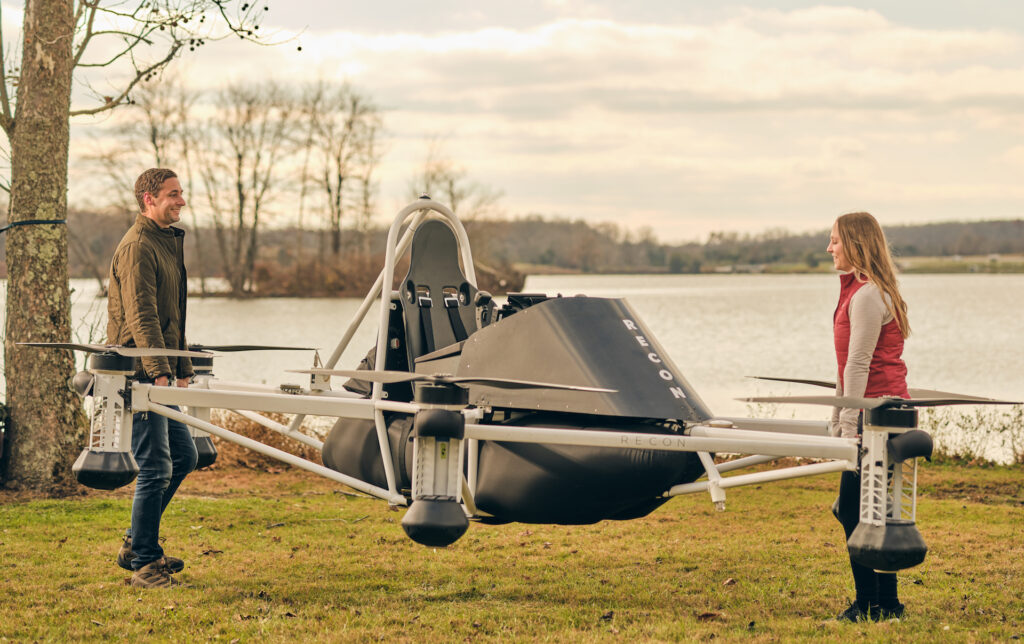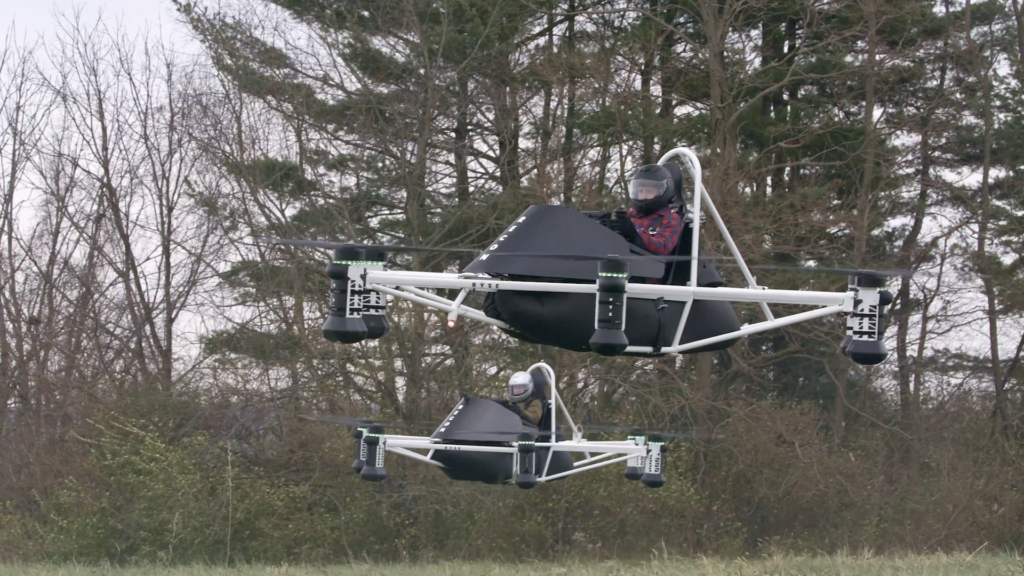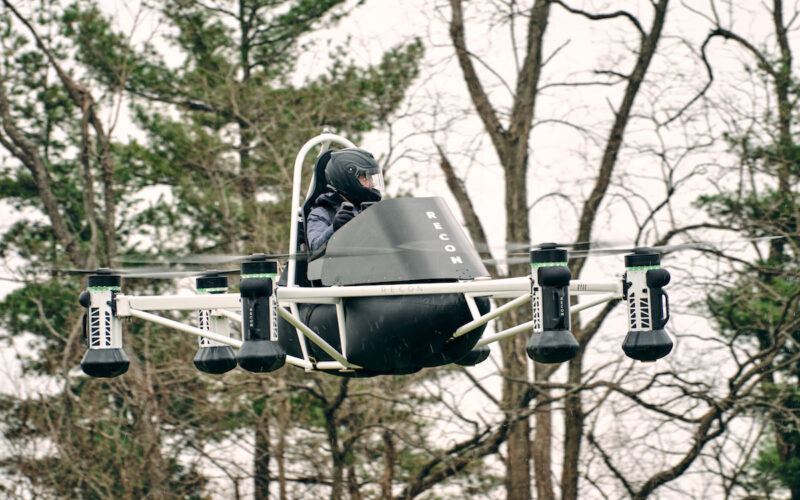Proponents of Advanced Air Mobility (AAM) aircraft promise an era of cheap and clean air transportation, such as air taxis to shuttle people around. But what if you could take this concept a step further and get everyone to fly their own electric vertical take-off and landing (eVTOL) aircraft in much the same way as people drive cars?
In fact, while in most places you still need to gain a driving license to operate a car, under the United States Federal Aviation Administration’s (FAA) Federal Aviation Regulation (FAR) Part 103, ultralight aircraft do not require the user to hold a pilot’s license or an airworthiness certificate.
This is the case with RECON, an electric, one-seater, ultralight eVTOL being developed by RYSE Aero Technologies.
The Ohio-based startup was founded by Mick Kowitz, a tech and healthcare entrepreneur who took an interest in the possibilities offered by the emerging advanced air mobility sector.
Kowitz and his team began developing a conventional eVTOL, but soon realized the process was extremely slow and fraught with difficulties given the technical and regulatory challenges associated with the development of relatively large aircraft.
They soon turned their attention to a segment of the industry that offered a much more flexible framework to innovate and iterate new ideas: the market for ultralight aircraft.
There are already numerous conventional take-off and landing aircraft models in this category. However, Kowitz was interested in an aircraft that offered the possibility to operate from pretty much anywhere. This is how the RYSE RECON started to take shape.
The RYSE RECON eVTOL is a flying vehicle in the below-300 lb. category (136 kg). It can fly one person up to a height of 400ft (121 meters). However, in conversation with AeroTime Kowitz clarified that he does not recommend flying that close to the theoretical ceiling of the aircraft. The RECON is capable of reaching a top speed of 63 miles per hour (101 km/h).

The agricultural and recreational markets are RYSE’s key targets. The RECON eVTOL, for example, will enable landowners and cattle ranchers to monitor large tracts of land without the need to move vehicles or machinery through fields. It can even land on water and take off again from it.
RYSE’s team is also eyeing opportunities to expand into other markets such as oil, gas and mining industries as well as government agencies such as the National Park Service or the military.
One of the most interesting aspects of this project, though, is its use of innovative materials and manufacturing techniques.
In addition to using 3D printing to make many of its parts, RYSE has also developed and patented some of the very light composites used in the aircraft. This is the case with the carbon fiber frame, which will replace the original aluminum one used in the earlier RECON prototypes. This material delivers weight advantages but will also help speed up the manufacturing process by doing away with some of the welding involved in metal frames.
When it comes to propulsion, the RECON is powered by six custom-designed 100 Vdc electric batteries, paired with an equal number of 40Kv engines and propellers distributed around a central cockpit.
According to Kowitz, these batteries, which provide around 20 minutes of flight time, can be easily unmounted, recharged, and replaced when needed.
The RECON eVTOL first flew in March 2022 and has since completed more than 40 flight tests, including a live demonstration in January 2023 at the 2023 Consumer Electronics Show (CES) in Las Vegas in front of 40,000 attendees.

Kowitz explained that the Recon is now in pre-production and is expected to start deliveries by December 2023.
“100 people have already committed to take part in our ‘pilot test’, pun intended since you don’t actually need to be a pilot,” joked Kowitz, who, nevertheless, does hold a pilot license.
“These people are going to provide feedback, and this will allow us to perfect the product,” he added.
The early adopter program will then be extended to an additional 1,000 people before making it available to the public.
The retail price? The first batch is going for around US$150,000.
RYSE has raised enough funds to get to the industrial production stage, although the company is currently looking to raise more funds. In August 2023, the company launched an equity crowdfunding campaign via the DealMaker platform.

